VIPsight - January 2011
COMPANIES
Bilfinger Berger wants to monetize Valemus
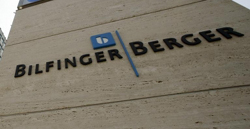 In July 2010 Germany’s second-biggest construction group Bilfinger Berger had already attempted to bring its Australian subsidiary Valemus to the stock exchange. At the last second, however this IPO was called off; the estimated proceeds would have been too small. Now Australian construction group LendLease has confirmed that it was in talks with Bilfinger Berger about selling the subsidiary down under. The purchase price appears to be in the triple digits of millions. Bilfinger has admitted that an IPO was just as likely as a sale. With the €800 million hoped for, CEO Herbert Bodner wants to expand the service business and thus gradually move away from pure construction business.
In July 2010 Germany’s second-biggest construction group Bilfinger Berger had already attempted to bring its Australian subsidiary Valemus to the stock exchange. At the last second, however this IPO was called off; the estimated proceeds would have been too small. Now Australian construction group LendLease has confirmed that it was in talks with Bilfinger Berger about selling the subsidiary down under. The purchase price appears to be in the triple digits of millions. Bilfinger has admitted that an IPO was just as likely as a sale. With the €800 million hoped for, CEO Herbert Bodner wants to expand the service business and thus gradually move away from pure construction business.
Conergy rescued
 On 17 December creditors decided to secure Conergy’s debts. They have thus averted threatened bankruptcy for the foreseeable future. An AGM at latest in February is now to decide to reduce the capital by seven eighths, from €400 million to only €50 million, in order then at a second stage to raise it again to €188 million. That would bring the debts of the group, in difficulties following exaggerated expansion, down from €323 million to €135 million. It will be interesting to see whether old shareholders exercise their preemption rights. Currently Commerzbank is the biggest holder at 29.08%, followed by the Sprüngmann brothers and their AthosService GmbH with 14.95% and Dieter Ammer with 3.79%. If they do not subscribe their full amounts, the two British hedge funds York and Sothic Capital might raise their holding. They had bought loans from creditor banks at a discount of up to 60% and could convert their debt certificates, to a value of €188 million, into shares, taking over the say in the group for themselves with a share block of up to 68%. That might threaten the breakup of the group. Conergy had already hived off parts of its wind-power business in December.
On 17 December creditors decided to secure Conergy’s debts. They have thus averted threatened bankruptcy for the foreseeable future. An AGM at latest in February is now to decide to reduce the capital by seven eighths, from €400 million to only €50 million, in order then at a second stage to raise it again to €188 million. That would bring the debts of the group, in difficulties following exaggerated expansion, down from €323 million to €135 million. It will be interesting to see whether old shareholders exercise their preemption rights. Currently Commerzbank is the biggest holder at 29.08%, followed by the Sprüngmann brothers and their AthosService GmbH with 14.95% and Dieter Ammer with 3.79%. If they do not subscribe their full amounts, the two British hedge funds York and Sothic Capital might raise their holding. They had bought loans from creditor banks at a discount of up to 60% and could convert their debt certificates, to a value of €188 million, into shares, taking over the say in the group for themselves with a share block of up to 68%. That might threaten the breakup of the group. Conergy had already hived off parts of its wind-power business in December.
Deutsche Bank swallows Postbank
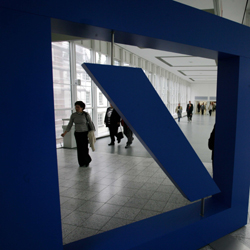 In early October Deutsche Bank offered Deutsche Postbank shareholders to take over their shares as part of a public offering. Germany’s biggest private bank was thus able to assure itself of the majority in the Bonn institution at 51.98%. To take over the Postbank shares as part of the bid, Josef Ackermann, Deutsche Bank CEO, had to find some €1.2 billion, making his bank slip down into the red in the third quarter. In order, however, to get the OK from the US authorities, the Frankfurt people had in the meantime lowered their holding to 49.95% and sold part of their block to Société Générale. Since the green light has now come from the US in mid-December, the Bonn bank with its 14 million private customers can now be consolidated on the Deutsche Bank books retroactively to 3 December. That means the announced takeover is fully on schedule. The remaining nearly 40% of Postbank shares are held by Deutsche Post. This block can be taken over by Deutsche Bank as from February 2012, in order finally to be able to make a control agreement with the Bonn bank.
In early October Deutsche Bank offered Deutsche Postbank shareholders to take over their shares as part of a public offering. Germany’s biggest private bank was thus able to assure itself of the majority in the Bonn institution at 51.98%. To take over the Postbank shares as part of the bid, Josef Ackermann, Deutsche Bank CEO, had to find some €1.2 billion, making his bank slip down into the red in the third quarter. In order, however, to get the OK from the US authorities, the Frankfurt people had in the meantime lowered their holding to 49.95% and sold part of their block to Société Générale. Since the green light has now come from the US in mid-December, the Bonn bank with its 14 million private customers can now be consolidated on the Deutsche Bank books retroactively to 3 December. That means the announced takeover is fully on schedule. The remaining nearly 40% of Postbank shares are held by Deutsche Post. This block can be taken over by Deutsche Bank as from February 2012, in order finally to be able to make a control agreement with the Bonn bank.
Deutsche Wohnen moves into the MDAX
After the takeover bid from Deutsche Bank to Deutsche Postbank shareholders, the dispersed holdings of the Bonn share felt below the 10% mark. Deutsche Börse rules provide in such cases for a so-called fast exit. With effect from 8 December, accordingly, the bank share dropped out of the MDAX into Prime Standard. The previously SDAX-listed real-estate firm Deutsche Wohnen has replaced the Bonn bank in the MDAX.
ACS likely to win at Hochtief
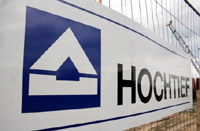 Despite considerable resistance by the Essen construction group Hochtief, its Spanish competitor ACS will probably prevail with its offer. ACS tried up to the year’s end to increase its stake in the German construction specialists to over 30 percent, to be able to take it over later at a lower price. However, the Esseners fought doggedly to the end against the inroads. In late November, Hochtief boss Herbert Lütkestratkötter had to accept a defeat when Australian takeover authorities decided on appeal that ACS need not present any separate bid for Australian subsidiary Leighton. Additionally, the Federal Institute for Financial Services Oversight (BaFin) authorized a voluntary bid by the Spaniards to Hochtief shareholders. In early December ACS held just under 30%. The object of the voluntary bid was to get the ACS share of Hochtief up to just over 30%. For if the 30% mark is crossed in time, a compulsory offer need not be made, as is otherwise usual with crossings of thresholds. That would have to be in relation to the average share price on the exchange, and would thus cost ACS dear. With BaFin acceptance, in early December ACS offered Hochtief shareholders initially eight ACS shares for five Hochtief ones; well below the present price. And accordingly the acceptance rate was, as desired, low even after two weeks. Shareholder association Deutsche Schutzvereinigung für Wertpapierbesitz (DSW) criticized the offer as an “alibi” bid.
Despite considerable resistance by the Essen construction group Hochtief, its Spanish competitor ACS will probably prevail with its offer. ACS tried up to the year’s end to increase its stake in the German construction specialists to over 30 percent, to be able to take it over later at a lower price. However, the Esseners fought doggedly to the end against the inroads. In late November, Hochtief boss Herbert Lütkestratkötter had to accept a defeat when Australian takeover authorities decided on appeal that ACS need not present any separate bid for Australian subsidiary Leighton. Additionally, the Federal Institute for Financial Services Oversight (BaFin) authorized a voluntary bid by the Spaniards to Hochtief shareholders. In early December ACS held just under 30%. The object of the voluntary bid was to get the ACS share of Hochtief up to just over 30%. For if the 30% mark is crossed in time, a compulsory offer need not be made, as is otherwise usual with crossings of thresholds. That would have to be in relation to the average share price on the exchange, and would thus cost ACS dear. With BaFin acceptance, in early December ACS offered Hochtief shareholders initially eight ACS shares for five Hochtief ones; well below the present price. And accordingly the acceptance rate was, as desired, low even after two weeks. Shareholder association Deutsche Schutzvereinigung für Wertpapierbesitz (DSW) criticized the offer as an “alibi” bid.
In retaliation, in mid-December Lütkestratkötter skillfully wangled a capital increase ex rights by just under 10%, or seven million shares. As a new shareholder he presented the sovereign wealth fund of the emirate of Qatar, which at 9.1% proved up to be an important counterweight to ACS. At the same time, the two partners decided on major construction projects, to be carried through in Qatar in connection with the 2022 football championships. ACS was enraged at this move, since it diluted the Spaniards’ Hochtief share to 27.3%, moving its crossing of the 30% threshold far off. Contrary to its initial claims that it would not do any further touching up, on 15 December ACS accordingly presented a new bid, now offering 9 ACS shares for 5 Hochtief ones. That corresponded to a valuation of €63, 12.5% up from the first offer, but still below the present exchange price of some €66 per share. The duration of the offer was the same, until 29 December. ACS secured covering fire initially from American Southeastern Asset Management (Hochtief holding 4.8%), which offered ACS some 2.05 million Hochtief shares to buy. That enabled the dilution to be made up again, bringing the ACS share in Hochtief back up to 29.9%. Hochtief recommended its shareholders not to take up the improved ACS offer either.
DSW calls on Sky to push damage claims
 As a consequence from the scandal about touched-up subscriber figures and faulty financial reports at pay-TV Sky Deutschland, shareholder association Deutsche Schutzvereinigung für Wertpapierbesitz (DSW) has called for the group’s supervisory board to bring an action for damages against the ex managers responsible. DSW managing director Daniela Bergdolt at the same time criticized the way those responsible handled the scandal. In 2008 the shareholder association had already called for unconditional clarification. It was now high time to disclose the payments already made too, with an eye to the threatened damage suit. “All shareholders have a right to learn who has what entitlements here, who can apply or already has,” says Bergdolt. The Federal Institution for Financial Services Oversight (BaFin) had found after a check that the former Premiere AG in 2007 and 2008 exaggerated customer figures and rated the firm’s value too high.
As a consequence from the scandal about touched-up subscriber figures and faulty financial reports at pay-TV Sky Deutschland, shareholder association Deutsche Schutzvereinigung für Wertpapierbesitz (DSW) has called for the group’s supervisory board to bring an action for damages against the ex managers responsible. DSW managing director Daniela Bergdolt at the same time criticized the way those responsible handled the scandal. In 2008 the shareholder association had already called for unconditional clarification. It was now high time to disclose the payments already made too, with an eye to the threatened damage suit. “All shareholders have a right to learn who has what entitlements here, who can apply or already has,” says Bergdolt. The Federal Institution for Financial Services Oversight (BaFin) had found after a check that the former Premiere AG in 2007 and 2008 exaggerated customer figures and rated the firm’s value too high.
Porsche shareholders approve capital increase
 The fully represented ordinary and preference shareholders of Porsche Automobil Holding accepted the proposed direct capital increase of 5 billion Euros at the AGM on 13 November in Stuttgart. The capital injection should reduce the Porsche holding company’s debt mountain, to let the company merge as soon as possible with Volkswagen. The capital increase goes half each to ordinary and preference shares, and is to come about by the end of May this year. The share swap with Europe’s biggest carmaker planned to follow might, however, because of legal and tax risks, be delayed beyond the end of the year until 2014. Additionally, the Volkswagen AGM still has to agree to the increase.
The fully represented ordinary and preference shareholders of Porsche Automobil Holding accepted the proposed direct capital increase of 5 billion Euros at the AGM on 13 November in Stuttgart. The capital injection should reduce the Porsche holding company’s debt mountain, to let the company merge as soon as possible with Volkswagen. The capital increase goes half each to ordinary and preference shares, and is to come about by the end of May this year. The share swap with Europe’s biggest carmaker planned to follow might, however, because of legal and tax risks, be delayed beyond the end of the year until 2014. Additionally, the Volkswagen AGM still has to agree to the increase.
TUI needs money
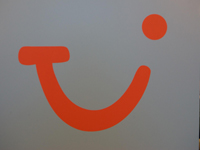 Shipowning subsidiary Hapag-Lloyd was long a thorn in the flesh for the tourism group, causing trouble and loss. This year the 43% holding helped the parent to show a profit again in the business year ending at the end of September. Even the debate over the future of Hapag-Lloyd CEO Michael Behrendt has died down. After Hapag-Lloyd shareholder Klaus-Michael Kühne had already commissioned a headhunter for the appointment to the CEO post, the supervisory board has now agreed to extend Behrend’s contract by two years. All the same, TUI wishes in future to concentrate on the tourism business. As well as looking for a new investor for the Hamburg firm, TUI will probably be bringing Hapag-Lloyd to the stock exchange by April next year. With the issue proceeds TUI will collect, up to 2 million Euros, TUI CEO Michael Frenzel might either reduce debts or make acquisitions in the tourism business.
Shipowning subsidiary Hapag-Lloyd was long a thorn in the flesh for the tourism group, causing trouble and loss. This year the 43% holding helped the parent to show a profit again in the business year ending at the end of September. Even the debate over the future of Hapag-Lloyd CEO Michael Behrendt has died down. After Hapag-Lloyd shareholder Klaus-Michael Kühne had already commissioned a headhunter for the appointment to the CEO post, the supervisory board has now agreed to extend Behrend’s contract by two years. All the same, TUI wishes in future to concentrate on the tourism business. As well as looking for a new investor for the Hamburg firm, TUI will probably be bringing Hapag-Lloyd to the stock exchange by April next year. With the issue proceeds TUI will collect, up to 2 million Euros, TUI CEO Michael Frenzel might either reduce debts or make acquisitions in the tourism business.
In the meantime Alexei Mordashov, now holding 18% of TUI, will be getting an extra seat on the supervisory board at the AGM in February. As a counterpart, the Russian steel magnate (Sever Group) will be expanding his TUI involvement in the short or long term. He has already made an application to German antitrust authority Kartellamt to buy over 25%. Someone who will be looking at this very closely will be his internal rival John Fredriksen, who holds 15% of TUI and has already been fighting in vain for some time for a second post on the supervisory board.
The balance-sheet correction for receivables of some 120 million euros at British TUI subsidiary TUI travel announced in October has now had effects on the pay of executives for 2008/9. The bonuses to the directors of the British company and those in charge at TUI will now be recalculated, after an IT error meant that all reset entries were left out of account, meaning that the turnovers and profits indicated were too high.
Buhlmann's Corner
Everything will be fine
 What? Is the world not good, must it be made better? After all, shareholders pay attention to responsibility, to sustainability – say their institutional representatives. They put their assets under pressure to show transparency and avoid conflicts of interest. There are no women on the supervisory board? That’ll be fixed in a jiffy, if the law wants. There’ll no bio-accident in 2011? So far at least, all are still best-in-class.
What? Is the world not good, must it be made better? After all, shareholders pay attention to responsibility, to sustainability – say their institutional representatives. They put their assets under pressure to show transparency and avoid conflicts of interest. There are no women on the supervisory board? That’ll be fixed in a jiffy, if the law wants. There’ll no bio-accident in 2011? So far at least, all are still best-in-class.
Over 250 investors with over 15 trillion U.S. dollars follow the Principles of Responsible Investment and their great deeds. The best reports about that are from Robeco, the loudest talking from Hermes, and the Retirees’ Reserve Funds are proud of their deeds too. Why then are they not to be seen at AGMs in Rome, Madrid or Hamburg? The shareholders’ meeting is the shareholders’ Parliament, isn’t it? But today it happens in the backroom. So they are “urged, shamed and more” by NGOs and by the committed, and as always, globally and based on written goals. OK, that’s better than a vacuum, but transparency is something else.
What do the others do? Those not among the 259 signatories of these principles? Generally, they buy themselves off, preferably from as monopolistic as possible service providers or their local colleagues, and cast their vote in a virtual mailbox. That’s their responsibility accomplished, or at least checked off. And what happens behind the mailbox? In principle nothing, but it is a fun area for skilled consultants, for a fee, to cobble together the appropriate AGM majorities – all the more complex, the more cross-border obstacles have to be overcome. But not a single investor notices – that’s not what they’re paying for, after all, but for peace of mind and shed responsibility.
In local practice, the brave new world looks more colourful. There, service providers paid by the other side, the issuers, are preferentially welcome. So it’s gratifying that we can discuss OBO/NOBO (rather than broker voting or tactical voting or whatever) with the SEC – at least that’s something no-risk we’ll have done. The tangible responsibility we can leave to the others. After all, the colleagues are right when they say that for the chance to make mistakes in the supervision and control of assets they don’t want to have to pay into the bargain. And if the mistakes get big enough, then you can call them too big to fail. It was so nice last time round, and even worked with a government guarantee – so everything will be fine.
ACTIONS CORNER
In the case about the discharge to top managers in the course of the takeover of Dresdner Bank, Commerzbank has scored a victory before the Frankfurt Higher Regional Court (OLG). The court found no breaches of law in the takeover of Dresdner Bank by Germany’s second-biggest finance house. The purchaser’s failure to take a vote of shareholders was legal. All the actions for avoidance and nullity again resolutions of the May 2009 AGM were thrown out by the OLG. Many shareholders felt they had been passed over in the purchase decision and wanted not to give discharge to the board or Supervisory Board.
Against payment of a sum of some 554 million dollars by Deutsche Bank, the New York state prosecutors and American revenue authority IRS have stopped their multiyear investigations of the bank for connivance in tax evasion. The investigations concerned the bank’s involvement in “tax-related transactions for customers”. Because of the sale of fraudulent tax-saving models sold to rich Americans between 1996 and 2002, using which profits could apparently be slipped past the Revenue, the bank has to pay this amount, suspected of being a record, following a settlement with the American tax authorities.
In the mammoth trial against Deutsche Telekom, an end seems to be in sight. Thus, before Frankfurt Higher Regional Court (OLG) on 15 December, Birgitta Schier-Ammann stated that there was an error in the prospectus for the formally state-owned firm’s third IPO. However, the judge left open the question of how important this would ultimately be and whether compensation claims would follow for the 17,000 disappointed Telekom shareholders, for share-price losses amounting to some €80 million. After 16 days of proceedings, the OLG set 13 April as the date for announcing its decision.
On 15 December the three parties to the dispute, Deutsche Telekom, Elektrim and Vivendi, signed an agreement settling their legal disputes, which have lasted over 11 years, about Polska Telefonia Cyfrowa (PTC). Under the agreement, the Bonn company are paying a total of €1.4 billion to Vivendi. As a counterpart they will receive the remaining 51% of Poland’s third-biggest mobile-telephony operator. The French telecommunications and media group had wrongly purchased 51% of the shares in PTC in 1999, a fact that however did not emerge until 2004. By selling to the French, the Polish company had infringed the Germans’ preemption rights.
E.ON is going to have to pay heavily for breaking a seal on a store-room door following a search in its business premises in May 2006, with which EU competition authorities wanted to safeguard documents against subsequent corrections. Germany’s biggest energy group had rejected the charges. The European Court of Justice in Luxembourg has now, on 15 December, rejected an action for nullity by E.ON against the penalty handed down in 2008. The judges regard the fine for negligent or deliberate breaking of the seal, amounting to 0.14% of turnover, as by no means inappropriate. The group would have to pay the fine set, of €38 million.
Two years after carrying out raids, the EU Commission on 10 December opened formal investigations against a presumed Europe-wide cement cartel of eight companies – including HeidelbergCement. The company is suspected of having deliberately restricted trade in cement, pre-cast concrete, clinker and slag, in a cartel, thereby artificially driving up prices. The initial suspicions are also based on price agreements and market-sharing agreements, stated the Commission in Brussels. The accusations have not being confirmed.
Michael Jaffé has sued Infineon Technologies for alleged formal errors in its hiving off of Qimonda in 2006. The bankruptcy administrator has filed suit accordingly with Munich Regional Court. According to the semiconductor group’s statement, he is accusing the DAX company of omissions in outsourcing memory-chip activities, causing the former memory-chip subsidiary financial disadvantages, in Jaffé’s view. Infineon admitted that the amount involved could theoretically be several hundred million Euros. However, reserves have not been set aside for this.
Merck is paying 280 million dollars to settle a legal dispute with Dey. In 2007 US justice authorities had brought proceedings against its former US subsidiary for restitution of increased prices for medicaments. This was stated by Mylan, which had taken over the Darmstadt pharmaceuticals and chemicals group’s business in generics. The Darmstadt company had sold its former subsidiary the same year to the US generics firm; it was however agreed that the German pharma group would be responsible for the consequences of the impending lawsuit. Dey was, according to Merck, accused of having made false reports about certain price information.
SAP is to pay Oracle in the US over 210 million dollars in interest on the 1.3 billion dollar damage payment. The increased claim emerges from documents filed in court in early December, reports Reuters. However, the verdict is not yet unappealable, and the Walldorf people are considering appealing: “We do not believe Oracle is entitled to any compensation at all beyond the final court verdict in the case,” said central office in Walldorf. This sort of claim was “routine”, stated lawyers for its US rival.
Together with other European railways, Deutsche Bahn is suing several members of a carbon and graphite products cartel for compensation because of price agreements, amounting to €101 million. According to Deutsche Bahn, among other carbon producers SGL CARBON is being sued. Deutsche Bahn had filed a corresponding suit in the London antitrust court against the supplier. The products concerned were from smaller marginal businesses that had been sold by 2003, responded the Wiesbaden graphite specialists.
Only one day after Munich public prosecutors’ major search operation on 15 November 2010, Siemens has filed suit against the former director-general for Telecommunications and Informatics of Siemens Greece. The long-term Siemens manager is accused of not having furnished any documentation on the use of some 8 million euros from the group’s presumed slush funds in Switzerland. An ex minister was also being charged by Greek authorities with money laundering, after admitting accepting bribes in the 1990s.
Only a few months after starting up the first blast furnace, ThyssenKrupp is facing new problems with its new steelworks in Brazil. The top criminal-prosecution authority in the Federal State of Rio de Janeiro and a group of Greens are accusing managers of a group subsidiary of, among other things, health-threatening emissions from the works; the group denies this. The steel and industrial-goods company had, it stated, not yet been officially informed of any criminal proceedings. Nor would that be case until a case prepared by public prosecutors in Rio de Janeiro was accepted by the court.
AGM Dates
| Company | Event | Date | Time | Place | Address | Published on |
| DAX | ||||||
| Siemens AG | ord.AGM | 25.01.2011 | 10:00 | 80809 München | Coubertinplatz, in der Olympiahalle im Olympiapark | 07.12.2010 |
| The Agenda for the ordinary AGM of Siemens AG starts with the usual items, like presentation of annual accounts and discharge to the company bodies. Siemens AG earned balance-sheet profits of €2,458.35m last business year. Of the profits, €2,355.68m is to be paid out as dividend and €112.67m carried forward to a new account. A resolution approving the board members’ pay system is to be taken. The company is to be authorized to purchase its own shares and use them, excluding shareholders’ subscription and tendering rights. A resolution is to be taken authorizing the use of derivatives in connection with purchase of own shares pursuant to §71(1)(8) AktG and on excluding subscription and tendering rights. The existing Authorized Capital is to be replaced by a new one of €90m, excluding subscription rights, for distribution to employees, with a corresponding charter amendment. Supervisory Board members’ pay is to be adjusted. Additionally, a profit transfer agreeement is to be concluded between Siemens AG and Siemens Finance GmbH in favour of Siemens AG. Additionally, the company is to be authorized to issue option and convertible bonds, excluding subscription rights. For this, Conditional Capital of €270m is to be kept available. Additionally, several charter amendments are to be decided. | ||||||
| ThyssenKrupp AG | ord.AGM | 21.01.2011 | 10:00 | 44791 Bochum | Stadionring 20, im RuhrCongress | 10.12.2010 |
| The Agenda for the ordinary AGM of ThyssenKrupp AG starts with the usual items, like presentation of annual accounts and discharge to the company bodies. ThyssenKrupp AG earned balance-sheet profits of €415.16m last business year. Of the profits, €208.98m is to be paid out as dividend, €183.64m placed in reserves and €22.54m carried forward to a new account. Approval of the board members' pay system is to be decided. Dr. Eckhard Schulz is to be elected to the Supervisory Board. | ||||||
| MDAX | ||||||
| Wincor Nixdorf AG | ord.AGM | 24.01.2011 | 11:00 | 33102 Paderborn | Schützenplatz 1, im Hansesaal, Schützenhof Paderborn | 10.12.2010 |
| The Agenda for the ordinary AGM of Wincor Nixdorf AG starts with the usual items, like presentation of annual accounts and discharge to the company bodies. Wincor Nixdorf AG earned balance-sheet profits of €238.43m last business year. Of the profits, €53.15m is to be paid out as dividend and €185.28m carried forward to a new account. Mr Hans-Ulrich Holdenried and Dr. Alexander Dibelius are to be elected or re-elected to the Supervisory Board. The company is again to be authorized to purchase its own shares and use them, excluding shareholders’ subscription and tendering rights. In connection with purchase of own shares authorization to use derivatives and exclude subscription rights is to be decided. | ||||||
Politics
DAX Supervisory Board members against compulsory replacement of auditors
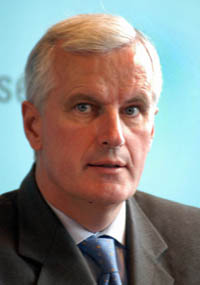 In the mind of EU internal-market Commissioner Michel Barnier, auditors are in future to be appointed by governments. The Supervisory Boards of German companies, however, want to continue choosing their auditors themselves, and also agreeing auditors’ fees themselves. The centralization would take power away from shareholders, says Frankfurter Allgemeine Zeitung, quoting a letter from the DAX groups to the Commissioner. The Supervisory Board members are however in favour of verifying after at most seven years whether there might not be alternatives to today’s auditing companies.
In the mind of EU internal-market Commissioner Michel Barnier, auditors are in future to be appointed by governments. The Supervisory Boards of German companies, however, want to continue choosing their auditors themselves, and also agreeing auditors’ fees themselves. The centralization would take power away from shareholders, says Frankfurter Allgemeine Zeitung, quoting a letter from the DAX groups to the Commissioner. The Supervisory Board members are however in favour of verifying after at most seven years whether there might not be alternatives to today’s auditing companies.
Tougher penalties for “creeping up”
 Hostile takeover attacks like Porsche’s on Volkswagen, Schaeffler’s on Continental or the present one by ACS on Hochtief are to be made more difficult in future. In early December the Bundestag finance committee debated tougher penalties for so called creeping-up. The concealed building-up of share positions could according to these be the object of deterrent penalties. On the committee, legal experts had proposed amendments to the Securities Trading Act (WpHG) providing that shareholders would in future not just have to indicate actual shareholdings of over 3%, but also disclose when they had options through special instruments on shares to a value of over 5%. One possible punishment for concealment might be for the Federal Institute for Financial Services Oversight (BaFin) to prevent the shares from option transactions actually being handed over. If the plan should emerge only once the shares had already been transferred, BaFin could block these securities’ voting rights for a year. To date, the fine on such moves was only up to €500,000. Social Democrats had called for it to be possible in future to require a takeover bid not just when 30% is exceeded, but also at 50%, but they failed.
Hostile takeover attacks like Porsche’s on Volkswagen, Schaeffler’s on Continental or the present one by ACS on Hochtief are to be made more difficult in future. In early December the Bundestag finance committee debated tougher penalties for so called creeping-up. The concealed building-up of share positions could according to these be the object of deterrent penalties. On the committee, legal experts had proposed amendments to the Securities Trading Act (WpHG) providing that shareholders would in future not just have to indicate actual shareholdings of over 3%, but also disclose when they had options through special instruments on shares to a value of over 5%. One possible punishment for concealment might be for the Federal Institute for Financial Services Oversight (BaFin) to prevent the shares from option transactions actually being handed over. If the plan should emerge only once the shares had already been transferred, BaFin could block these securities’ voting rights for a year. To date, the fine on such moves was only up to €500,000. Social Democrats had called for it to be possible in future to require a takeover bid not just when 30% is exceeded, but also at 50%, but they failed.
Bundesrat decides bank levy
 In late November the Bundesrat agreed to the Act to reorganize and restructure financial institutions, thus starting off the long-controversial bank levy. As from 2011, rehabilitation procedures are planned, to help remove problems facing credit institutions well before threatened bankruptcy proceedings. Before this, interventions in rights of creditors and the inclusion of shareholders are planned during reorganization procedures. The restructuring and ordered winding-down of an institution of systemic relevance is to be financed through a fund into which the financial sector will have to pay to through a bank levy. Here savings banks and cooperative banks are explicitly not excluded from paying into the fund, as had initially been requested by the Länder of Baden-Württemberg and Hessen. After a pronouncement by Federal Chancellor Angela Merkel (CDU), the mediation committee was not called in here – as previously threatened. The fund should keep reserves amounting to 70 billion euros, and payments are to be progressively graded. The annual amounts will be according to the bank’s business volume and size, as well as the degree of involvement of the institute concerned in the financial markets. It was also decided that the pay of employees working at state-supported banks would be limited to €500,000 per year. With State holdings of over 75%, additionally, variable payments, such as bonuses, would be entirely eliminated. Finally, company-law liability of officers of listed companies infringing their obligations would be doubled to ten years.
In late November the Bundesrat agreed to the Act to reorganize and restructure financial institutions, thus starting off the long-controversial bank levy. As from 2011, rehabilitation procedures are planned, to help remove problems facing credit institutions well before threatened bankruptcy proceedings. Before this, interventions in rights of creditors and the inclusion of shareholders are planned during reorganization procedures. The restructuring and ordered winding-down of an institution of systemic relevance is to be financed through a fund into which the financial sector will have to pay to through a bank levy. Here savings banks and cooperative banks are explicitly not excluded from paying into the fund, as had initially been requested by the Länder of Baden-Württemberg and Hessen. After a pronouncement by Federal Chancellor Angela Merkel (CDU), the mediation committee was not called in here – as previously threatened. The fund should keep reserves amounting to 70 billion euros, and payments are to be progressively graded. The annual amounts will be according to the bank’s business volume and size, as well as the degree of involvement of the institute concerned in the financial markets. It was also decided that the pay of employees working at state-supported banks would be limited to €500,000 per year. With State holdings of over 75%, additionally, variable payments, such as bonuses, would be entirely eliminated. Finally, company-law liability of officers of listed companies infringing their obligations would be doubled to ten years.
Rearrangement of bank oversight
The CDU and FDP agreed in mid December on a reform of national bank oversight. By contrast with the coalition paper from the black-yellow government, bank oversight would not be brought under a single umbrella. Originally the FDP wanted to hand banking oversight completely over to the Bundesbank. Plans are now for the Deutsche Bundesbank and the Federal Institution for Financial Services Oversight (BaFin) to continue to share banking oversight in future. Here BaFin will be under supervision from the Federal Ministry of Finance, while the Bundesbank will also in future continue to be independent of political instructions. After the keynote paper now to be drawn up by the Federal Finance Minister, the Bundesbank is to be responsible for system stability, while decisions in individual cases such as removal of bank executives or closure of a credit institution are in future to be taken by BaFin. Supervision of securities markets and insurance will also continue to be under BaFin. Critics are calling the four key points presented more of a mini-reform than a real reform. An independent foundation for financial products resembling Stiftung Warentest is also to be brought in.
Transparent risk-management at banks
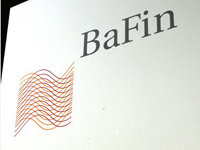 The Federal Institution for Financial Services Oversight (BaFin) published new minimum requirements on banks’ risk management (MaRisk) in mid-December. The provisions apply immediately and must be implemented by all credit institutions by the end of 2011. The banks are now being called on to formulate specific parameters for sustainable business strategies. Alongside targets, measures for reaching them are also to be laid down, and risks to be taken into account. That means that in future company management will come into the focus of BaFin supervision. Specifically, banks must in emergency cases be able to meet their liquidity needs for at least a month from sustainable reserves. Additionally, they are to keep available highly liquid assets that can be sold at any time without major loss of value. Moreover, BaFin is also tightening up requirements on banks’ stress tests. Thus, as part of so-called inverse stress tests, events and developments able to bring down a credit institution are to be identified.
The Federal Institution for Financial Services Oversight (BaFin) published new minimum requirements on banks’ risk management (MaRisk) in mid-December. The provisions apply immediately and must be implemented by all credit institutions by the end of 2011. The banks are now being called on to formulate specific parameters for sustainable business strategies. Alongside targets, measures for reaching them are also to be laid down, and risks to be taken into account. That means that in future company management will come into the focus of BaFin supervision. Specifically, banks must in emergency cases be able to meet their liquidity needs for at least a month from sustainable reserves. Additionally, they are to keep available highly liquid assets that can be sold at any time without major loss of value. Moreover, BaFin is also tightening up requirements on banks’ stress tests. Thus, as part of so-called inverse stress tests, events and developments able to bring down a credit institution are to be identified.
EU tightens up information duties on investment advisers
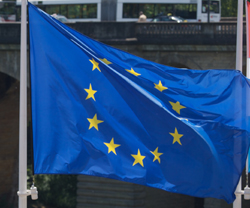 In late November the EU Commission, following two years of discussion, published plans for how in future it is to combine distribution and the information obligation in connection with private financial investments in the EU. To date there exists a patchwork of national rules and sector-specific EU provisions. Irrespective of whether a bank, an insurance representative or an independent adviser in future sells insurance, funds, certificates or savings accounts, in future commissions and conflicts of interest are to be disclosed on the same basis Europe-wide. To date, for funds and certificates, the financial market guideline Mifid applied, and this is now to be extended as a standard to all products. Ultimately the investors are to be able to compare costs, chances and risks on a double sheet of paper. The plans are to be given statutory form before the end of 2011. By the end of January the financial industry and also consumer protection groups are to be able to take positions on the proposals.
In late November the EU Commission, following two years of discussion, published plans for how in future it is to combine distribution and the information obligation in connection with private financial investments in the EU. To date there exists a patchwork of national rules and sector-specific EU provisions. Irrespective of whether a bank, an insurance representative or an independent adviser in future sells insurance, funds, certificates or savings accounts, in future commissions and conflicts of interest are to be disclosed on the same basis Europe-wide. To date, for funds and certificates, the financial market guideline Mifid applied, and this is now to be extended as a standard to all products. Ultimately the investors are to be able to compare costs, chances and risks on a double sheet of paper. The plans are to be given statutory form before the end of 2011. By the end of January the financial industry and also consumer protection groups are to be able to take positions on the proposals.
Tax from financial transactions to come after all
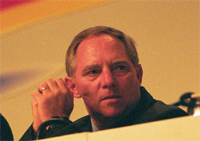 The topic of a tax on financial transactions is not yet dead, despite the German government’s failure on the international stage and in EU circles. At a meeting of Finance Ministry tax experts with financial-industry associations in mid-December, the tax was fleshed out, with the lowest figure of 0.01% being set for the tax rate. The Minister is not concerned with producing a guiding effect on financial transactions. Instead, the tax should raise additional revenue, says the Ministry. Federal finance minister Wolfgang Schäuble (CDU) is planning to tax all financial products, including derivatives and OTC (Over the Counter) products not traded on the exchange. While the associations reject the tax, they want as a minimum consensus to prevent the taxation of pensioner products, funds and savings accounts. It is however currently unclear when and how the tax is to become due. Schäuble has already pencilled in revenue from the tax amounting to 2 billion euros for the 2012 budget. Experts are expecting annual takings of up to 12 billion euros. Opponents of the tax fear that if it is introduced unilaterally by the Federal Republic of Germany, financial transactions might move out to other countries. The object of the tax is to make the financial industry share in the consequences of the crisis. Especially low-margin transactions and computerized trading could be limited through the tax, which could contribute to stabilizing the markets.
The topic of a tax on financial transactions is not yet dead, despite the German government’s failure on the international stage and in EU circles. At a meeting of Finance Ministry tax experts with financial-industry associations in mid-December, the tax was fleshed out, with the lowest figure of 0.01% being set for the tax rate. The Minister is not concerned with producing a guiding effect on financial transactions. Instead, the tax should raise additional revenue, says the Ministry. Federal finance minister Wolfgang Schäuble (CDU) is planning to tax all financial products, including derivatives and OTC (Over the Counter) products not traded on the exchange. While the associations reject the tax, they want as a minimum consensus to prevent the taxation of pensioner products, funds and savings accounts. It is however currently unclear when and how the tax is to become due. Schäuble has already pencilled in revenue from the tax amounting to 2 billion euros for the 2012 budget. Experts are expecting annual takings of up to 12 billion euros. Opponents of the tax fear that if it is introduced unilaterally by the Federal Republic of Germany, financial transactions might move out to other countries. The object of the tax is to make the financial industry share in the consequences of the crisis. Especially low-margin transactions and computerized trading could be limited through the tax, which could contribute to stabilizing the markets.
People
Dirk Große Wördemann succeded Norbert Kickum on 1 December 2010 as board member at Aareal Bank. He will be in charge of international markets in the business segment of structured real-estate financing. This was announced by the credit institution on 29 November 2010. Kickum had left the Wiesbaden real-estate financiers on 31 October 2010.
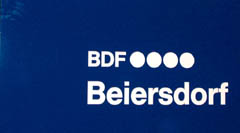 At Beiersdorf, CFO Bernhard Düttmann (51) is leaving after 21 years with the firm and four at his current post, as soon as he has presented the final account for the current year and broken in his successor Ulrich Schmidt (57), to date in charge of South-East Europe business. Thereafter he is to take new professional challenges. Also joining the board, from 1 March, is Ümit Subasi. The 43-year-old economist comes from SC Johnson, will take the still open post for “Emerging Markets” and will be responsible for the regions of South America, India, Africa, Middle East and Russia. He already ran activities in various countries for the American consumer-goods producer, as managing director.
At Beiersdorf, CFO Bernhard Düttmann (51) is leaving after 21 years with the firm and four at his current post, as soon as he has presented the final account for the current year and broken in his successor Ulrich Schmidt (57), to date in charge of South-East Europe business. Thereafter he is to take new professional challenges. Also joining the board, from 1 March, is Ümit Subasi. The 43-year-old economist comes from SC Johnson, will take the still open post for “Emerging Markets” and will be responsible for the regions of South America, India, Africa, Middle East and Russia. He already ran activities in various countries for the American consumer-goods producer, as managing director.
Professor Siegfried Wolf has joined the Continental Supervisory Board. The automotive supplier’s Supervisory Board was unanimously in favour. The board has filed the neccessary application for court appointment with the competent district court in Hanover. The ex CEO of Magna International is thus succeeding Rolf Koerfer, who resigned on 29 November 2010 with immediate effect.
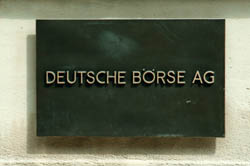 Konrad Hummler, since 12 September 2007 member of the Deutsche Börse Supervisory Board, will be leaving it after the next AGM on 12 May, stated the stock-market operator on 26 November 2010. The 57-year-old becomes the new president of the administrative board of the NZZ media group, and wishes to concentrate on these duties, it continued.
Konrad Hummler, since 12 September 2007 member of the Deutsche Börse Supervisory Board, will be leaving it after the next AGM on 12 May, stated the stock-market operator on 26 November 2010. The 57-year-old becomes the new president of the administrative board of the NZZ media group, and wishes to concentrate on these duties, it continued.
 From 31 December 2010 Frank Appel has left the Deutsche Postbank Supervisory Board. This means the Deutsche Post CEO is taking account of the changed shareholder structure at the Bonn company, and making way for the transition to the new majority shareholder. He is soon to be replaced on the Postbank Supervisory Board by Rainer Neske, as third representative of Deutsche Bank.
From 31 December 2010 Frank Appel has left the Deutsche Postbank Supervisory Board. This means the Deutsche Post CEO is taking account of the changed shareholder structure at the Bonn company, and making way for the transition to the new majority shareholder. He is soon to be replaced on the Postbank Supervisory Board by Rainer Neske, as third representative of Deutsche Bank.
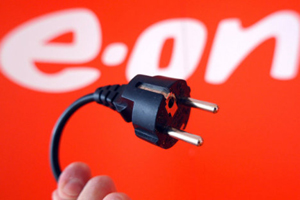 As E.ON announced on 13 December 2010, Ulrich Hartmann will be resigning after the AGM in May. The Supervisory Board chair has worked for E.ON and its predecessor firms for 38 years. His proposed successor is Werner Wenning (64). According to E.ON statements, Wilhelm Simson, now 72 years old, will also be resigning from the Supervisory Board after the next AGM.
As E.ON announced on 13 December 2010, Ulrich Hartmann will be resigning after the AGM in May. The Supervisory Board chair has worked for E.ON and its predecessor firms for 38 years. His proposed successor is Werner Wenning (64). According to E.ON statements, Wilhelm Simson, now 72 years old, will also be resigning from the Supervisory Board after the next AGM.
There is to be a change this year on the Supervisory Board of FUCHS PETROLUB: Jürgen Strube (71) intends to resign his post as chair of the Supervisory Board, which he has held since 2003, at the end of the AGM on 11 May. This was explained in a press release on 13 December 2010 by the Mannheim lubricant producer as because of “rejuvenation of the Supervisory Board in the interests of continuity”. The Supervisory Board is now to be chaired by Jürgen Hambrecht (64), still BASF CEO, who will have left the chemical giant only a few days before. 67-year-old Bernd Gottschalk will also be leaving then, on age grounds. He is to be replaced by Ines Kolmsee, CEO of SKW Stahl-Metallurgie Holding.
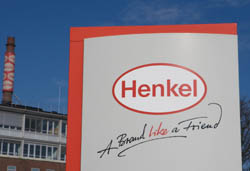
Thomas Geitner (55), who left Henkel “for personal reasons” on 31 December 2010, is being succeeded by Jan-Dirk Auris, as the consumer-goods group stated on 10 December 2010. The 42-year-old manager has been working for the Düsseldorf DAX group since 1994, and has since 2008 been Henkel president for the Asia-Pacific region, in charge of adhesives business there.
 Elmar Schnee (51), head of pharmaceuticals business for five years on the management board, will be leaving Merck “for personal reasons”, stated the pharmaceuticals and special-chemicals company. Following various setbacks in research, the current pharmaceuticals head is being replaced by Stefan Oschmann. Born in Würzburg, he has over 20 years’ experience in the international medicines business, and has taken over the operational responsibility for pharmaceuticals business as of 1 January. The 53-year-old will, like his predecessor, at the same time head the Merck Serono division. After CEO Karl-Ludwig Kley radically rearranged structures in both personnel and IT in past years, as from 1 April Kai Beckmann (45) is to take over responsibility for personnel.
Elmar Schnee (51), head of pharmaceuticals business for five years on the management board, will be leaving Merck “for personal reasons”, stated the pharmaceuticals and special-chemicals company. Following various setbacks in research, the current pharmaceuticals head is being replaced by Stefan Oschmann. Born in Würzburg, he has over 20 years’ experience in the international medicines business, and has taken over the operational responsibility for pharmaceuticals business as of 1 January. The 53-year-old will, like his predecessor, at the same time head the Merck Serono division. After CEO Karl-Ludwig Kley radically rearranged structures in both personnel and IT in past years, as from 1 April Kai Beckmann (45) is to take over responsibility for personnel.
Manfred Bächler has resigned his board seat at Phoenix Solar as from the end of 2010. The Supervisory Board of the TecDAX-listed photovoltaics-systems house took note with great regret of Bächler’s desire to leave the board early. His duties would be transferred to the other board members; in particular, Andreas Hänel took over the technology spot.
CFO Carsten Bovenschen has left Roth & Rau “for personal reasons, by mutual agreement. ” His appointment was terminated with effect from 15 December 2010, stated the solar-plant maker. A successor is being looked for. In the transition period CEO Dietmar Roth will also be taking on the finance spot, which he had held for a good three years before Bovenschen took office.
 Professor Heinz Jörg Fuhrmann is taking on the board chairmanship at Salzgitter as from 1 February, five months earlier than hitherto planned. To date the 54-year-old is in charge of finance at the steel producer. Professor Wolfgang Leese (64) will leave the position early, departing on 31 January, since the recent appointment of Burkhard Becker has also clarified the succession to Fuhrmann as CFO.
Professor Heinz Jörg Fuhrmann is taking on the board chairmanship at Salzgitter as from 1 February, five months earlier than hitherto planned. To date the 54-year-old is in charge of finance at the steel producer. Professor Wolfgang Leese (64) will leave the position early, departing on 31 January, since the recent appointment of Burkhard Becker has also clarified the succession to Fuhrmann as CFO.
Marcus Wolfinger, board member at STRATEC Biomedical Systems for eleven years, will be heading the TecDAX-listed firm as from 1 April. The reason is the decision by CEO Hermann Leistner to resign with effect from 31 March. As from 1 February Robert Siegle, currently still deputy Supervisory Board chair, will be joining the board.
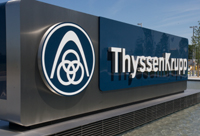 At Thyssen-Krupp, Ekkehard Schulz is to take over the Supervisory Board post of Henning Schulte-Noelle, who will be making it available at the AGM on 21 January. This was confirmed by Supervisory Board circles in Essen on 3 December 2010, after a report in newspaper "Die Welt". Following the shareholder meeting, Heinrich Hiesinger will be taking over the board chairmanship from the 69-year-old.
At Thyssen-Krupp, Ekkehard Schulz is to take over the Supervisory Board post of Henning Schulte-Noelle, who will be making it available at the AGM on 21 January. This was confirmed by Supervisory Board circles in Essen on 3 December 2010, after a report in newspaper "Die Welt". Following the shareholder meeting, Heinrich Hiesinger will be taking over the board chairmanship from the 69-year-old.
 The TUI Supervisory Board is being reduced from 20 seats to 16. The appointment of all Supervisory Board members ends at the end of the AGM on 9 February. Among the departing members, accordingly, is also Supervisory Board chair Dietmar Kuhnt. His successor at the head of the Supervisory Board is to be former Daimler executive Klaus Mangold, since the former RWE boss is not coming back again. Newly joining the Supervisory Board will also be former Post CFO Edgar Ernst, the CFO of Sever steel group Mikhail Noskov (the group belongs to Alexei Mordashov, TUI’s biggest shareholder) and Christiane Hölz of shareholder association Schutzvereinigung für Wertpapierbesitz, as can be seen from the list of proposals by the TUI nomination committee. Not up for re-election, apart from Kuhnt, are the ex head of the Deutsche Messe in Hanover, Sepp Dieter Heckmann, Jean Claude Baumgarten, president of the World Travel & Tourism Council, and Bayer Supervisory Board chair Manfred Schneider.
The TUI Supervisory Board is being reduced from 20 seats to 16. The appointment of all Supervisory Board members ends at the end of the AGM on 9 February. Among the departing members, accordingly, is also Supervisory Board chair Dietmar Kuhnt. His successor at the head of the Supervisory Board is to be former Daimler executive Klaus Mangold, since the former RWE boss is not coming back again. Newly joining the Supervisory Board will also be former Post CFO Edgar Ernst, the CFO of Sever steel group Mikhail Noskov (the group belongs to Alexei Mordashov, TUI’s biggest shareholder) and Christiane Hölz of shareholder association Schutzvereinigung für Wertpapierbesitz, as can be seen from the list of proposals by the TUI nomination committee. Not up for re-election, apart from Kuhnt, are the ex head of the Deutsche Messe in Hanover, Sepp Dieter Heckmann, Jean Claude Baumgarten, president of the World Travel & Tourism Council, and Bayer Supervisory Board chair Manfred Schneider.
Campus
Supervisory Board members earning more
 According to the Towers-Watson study on DAX 2010 supervisory board compensation, supervisory board members, like executives, can expect 21% higher pay on average. This reflects the recovery in Germany after the crisis, says the consultancy. A supervisory board chair of a DAX30 company will on average have earned some €262,200 in 2010, following €226,000 in 2009. Towers Watson expects rising supervisory board emoluments next year too.
According to the Towers-Watson study on DAX 2010 supervisory board compensation, supervisory board members, like executives, can expect 21% higher pay on average. This reflects the recovery in Germany after the crisis, says the consultancy. A supervisory board chair of a DAX30 company will on average have earned some €262,200 in 2010, following €226,000 in 2009. Towers Watson expects rising supervisory board emoluments next year too.
|
Company |
Supervisory board chair |
2010 |
2009 |
Change |
|
Volkswagen |
Ferdinand K. Piëch |
577,000 |
390,500 |
48% |
|
Siemens |
Gerhard Cromme |
501,400 |
384,000 |
31% |
|
BASF |
Eggert Voscherau |
478,000 |
- |
- |
|
E.ON |
Ulrich Hartmann |
433,900 |
453,000 |
-4% |
|
Henkel |
Simone Bagel-Trah |
400,000 |
- |
- |
|
RWE |
Manfred Schneider |
354,900 |
- |
- |
|
Linde |
Manfred Schneider |
338,200 |
316,900 |
7% |
|
SAP |
Hasso Plattner |
330,000 |
220,000 |
50% |
|
BMW |
Joachim Milberg |
301,700 |
175,000 |
72% |
|
Daimler |
Manfred Bischoff |
291,300 |
293,600 |
-1% |
|
Fresenius SE |
Gerd Krick |
272,800 |
242,000 |
13% |
|
Bayer |
Manfred Schneider |
270,000 |
270,000 |
0% |
|
Beiersdorf |
Reinhard Pöllath |
260,500 |
227,500 |
15% |
|
Munich Re |
Hans-Jürgen Schinzler |
258,000 |
268,000 |
-4% |
|
Deutsche Bank |
Clemens Börsig |
252,000 |
281,700 |
-11% |
|
ThyssenKrupp |
Gerhard Cromme |
245,400 |
263,700 |
-7% |
|
Allianz |
Gerhard Rupprecht |
229,000 |
224,500 |
2% |
|
MAN |
Ferdinand K. Piëch |
228,400 |
118,000 |
94% |
|
Telekom |
Ulrich Lehner |
226,900 |
73,400 |
209% |
|
Commerzbank |
Klaus-Peter Müller |
215,000 |
239,000 |
-10% |
|
Metro |
Jürgen Kluge |
193,700 |
194,900 |
-1% |
|
Lufthansa |
Jürgen Weber |
188,500 |
75,000 |
151% |
|
Deutsche Börse |
Manfred Gentz |
172,000 |
205,300 |
-16% |
|
Deutsche Post |
Wulf von Schimmelmann |
165,500 |
82,100 |
102% |
|
Adidas |
Igor Landau |
160,000 |
138,871 |
15% |
|
Fresenius Medical Care |
Gerd Krick |
143,500 |
108,000 |
33% |
|
HeidelbergCement |
Fritz-Jürgen Heckmann |
139,000 |
- |
- |
|
K+S |
Ralf Bethke |
122,500 |
125,500 |
-2% |
|
Merck |
Rolf Krebs |
61,300 |
- |
- |
|
Infineon |
Klaus Wucherer |
56,800 |
50,000 |
14% |
|
Source: Towers Watson, figures for 2010 estimated, for 2009 taken from business reports. Where figures are missing, the amount is not disclosed in the business report, or not for the whole year.
|
||||
Will 2011 be the year for takeovers?
According to a survey by consultancy Boston Consulting Group (BCG) and Asset Managers UBS, there will be several takeovers in the new year. The chief share strategist of Société Générale also predicts that 2011 will be a year for mergers and takeovers, share buybacks and dividend increases. In the course of the crisis firms had refrained from acquisitions and higher distributions, thus forming reserves. The cash reserves in firms in the Stoxx 600 alone have risen to $691 billion US, says data service provider Bloomberg. That means in any case 16% more than at the start of the crisis in 2007. Firms are now looking for ways of making use of this available cash. The BCG survey of 180 CEOs of European listed companies shows that only 6% of bosses prefer share buybacks or dividend increases. A third of them are instead expecting acquisitions of other European companies, and half of them even predict two or more takeovers in their own branch. 16% of them are themselves planning to take over a firm with a turnover of more than €500 million. And the probability of a takeover rises in the case of groups with a stock-exchange value of more than €5 billion by 100%. Reducing debt is not an alternative for 80% of the managers. Since high cash reserves make a company attractive for a hostile takeover, the slogan for 2011 is going to be: eat or be eaten.
BASF ahead on IR
 The investor-relations division of chemicals giant BASF is doing good work. Even internationally the group has collected prizes for good IR. In November the British IR Society gave the Ludwigshafen group the prize for best use of the homepage to communicate company investment decisions and also for most effective use of online media in IR work. All round, the BASF homepage was named best presented in the “international” category, and the business report (print and online) the most efficient report. As well as the four British distinctions, BASF took several other awards in 2010 for its IR work.
The investor-relations division of chemicals giant BASF is doing good work. Even internationally the group has collected prizes for good IR. In November the British IR Society gave the Ludwigshafen group the prize for best use of the homepage to communicate company investment decisions and also for most effective use of online media in IR work. All round, the BASF homepage was named best presented in the “international” category, and the business report (print and online) the most efficient report. As well as the four British distinctions, BASF took several other awards in 2010 for its IR work.
Companies sought for CSR study
The chair of industrial and organizational sociology of Frankfurt University is looking, in a study, at how important the issue of sustainability and corporative social responsibility (CSR) is regarded as by globally operating German firms. The academics are finding out the differing expectations that companies, customers, investors and the public have of a firm’s CSR. In doing so, employees of DAX and MDAX companies responsible for CSR are questioned on the topic in 20-minute interviews. The institute is looking for more participants. Contact: This email address is being protected from spambots. You need JavaScript enabled to view it.
K+S top for Say-on-Pay
For shareholders and investors, it is of great interest that the remuneration of their company’s executives be transparent. The organization of shareholder associations in Europe, EuroShareholders, accordingly awards a prize each year for the most shareholder-friendly remuneration systems. The jury, made up of experts from shareholder associations from all over Europe, gave prizes to the best “Say-on-Pay-Systems” in 2010 too, and in Germany honoured K+S, BMW and Beiersdorf for their remuneration practice.
IR managers skeptical about Social Web
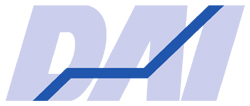 Listed companies are still hanging back when it comes to addressing investors through social media. This is the finding of the study “Innovative Instruments for Financial Communication” presented by the Deutsches Aktieninstitut and NetFederation. “For instance, to date only one in five IR managers uses the Twitter channel, or is planning to do so within the next six months”, stated Rüdiger von Rosen, managing director of the Deutsches Aktieninstitut. For other social media like Facebook or an IR blog, the skepticism is still more marked. Companies are not yet convinced of the utility of these instruments, and additionally communication through social media is fairly expensive and time-consuming, and the necessary staff and financial resources for it are lacking, fear the firms. The study “Innovative Instrumente der Finanzkommunikation” can be viewed at www.dai.de.
Listed companies are still hanging back when it comes to addressing investors through social media. This is the finding of the study “Innovative Instruments for Financial Communication” presented by the Deutsches Aktieninstitut and NetFederation. “For instance, to date only one in five IR managers uses the Twitter channel, or is planning to do so within the next six months”, stated Rüdiger von Rosen, managing director of the Deutsches Aktieninstitut. For other social media like Facebook or an IR blog, the skepticism is still more marked. Companies are not yet convinced of the utility of these instruments, and additionally communication through social media is fairly expensive and time-consuming, and the necessary staff and financial resources for it are lacking, fear the firms. The study “Innovative Instrumente der Finanzkommunikation” can be viewed at www.dai.de.
Capital News
Deutsche Telekom has set aside €400 million for its first share-buyback programme in connection with its new distribution policy. The share buyback was completed on 3 December. Altogether, according to a statement, in the course of the programme decided by the board in July, 40,000,787 shares were bought on the exchange, corresponding to 0.9% of the registered capital, and withdrawn. This leads to a dividend of €0.70 per share, since the Bonn group wants to keep the total distribution stable in the medium term at around €3.4 billion annually.
GAGFAH has announced it wants to buy back its shares up to a total purchase price of €125 million. That corresponds to 9% of all shares issued. The programme started on 8 December, stated the real estate group. The object of the repurchase is, according to company statements, to reduce the share capital of the Luxembourg-listed residential housing company. Before a buyback programme, Germany’s biggest listed real-estate company ought to have thought about reducing commitments, write JP Morgan analysts.
Qatar Holding has acquired all 6,999,999 shares from a capital increase at HOCHTIEF at an issue price of €57.114 per share, making it the construction group’s second biggest shareholder at 9.09%, after ACS. According to the Essen MDAX group, the capital increase diluted the shares held by ACS to somewhat over 27%. HOCHTIEF took in nearly 400 million Euros from the capital increase, which the group wants to use to expand into new markets. CEO Herbert Lütkestratkötter talked about a strategic partnership that was now to be consolidated.
United Internet is setting up a new share-buyback programme. The internet provider wants to purchase up to 4 million shares (corresponding to 1.67% of registered capital) on the exchange, stated the company on 10 December. The basis is a resolution from this year’s AGM, which once again gave authorization for the repurchase of a maximum of 10% of the registered capital. On the basis of the current share price of €11.60, United Internet would have to spend a good €46 million for that. From past share buyback programmes, the Internet group currently holds some 20 million of its own shares (corresponding to 8.33%).
Director's Dealings
in December
| Company | Person | Function | Buy / Sell | Total value in Euro | Number of shares | Datum |
| adidas | Christian Tourres | SB | S | 5.002.269 | 100.000 | 07.-08.12.2010 |
| Axel Springer | Dr. Mathias Döpfner | MB-Head | S | 8.588.830 | 73.140 | 13.12.2010 |
| Axel Springer | Moritz Döpfner | B | 83 | 1 | 10.05.2010 | |
| Axel Springer | Rudolf Knepper | MB | S | 5.687.370 | 48.432 | 13.12.2010 |
| Axel Springer | Dr. Andreas Wiele | MB | S | 5.687.017 | 48.429 | 13.12.2010 |
| BMW | Dr. Karl-Ludwig Kley | SB | S | 83.087 | 1.320 | 17.12.2010 |
| Daimler | Andreas Renschler | MB | S | 2.072.400 | 40.000 | 25.11.2010 |
| Daimler | Andreas Renschler | MB | exercise of options | 2.336.000 | 48.000 | 25.-26.11.2010 |
| Daimler | Bodo Uebber | MB | exercise of options | 4.160.760 | 96.000 | 25.11.2010 |
| Daimler | Bodo Uebber | MB | S | 4.300.230 | 83.000 | 25.11.2010 |
| Daimler | Dr. Thomas Weber | MB | S | 984.390 | 19.000 | 25.11.2010 |
| Daimler | Dr. Thomas Weber | MB | exercise of options | 1.030.400 | 20.000 | 25.11.2010 |
| Daimler | Dr. Dieter Zetsche | MB-Head | S | 11.968.110 | 231.000 | 25.11.2010 |
| Daimler | Dr. Dieter Zetsche | MB-Head | exercise of options | 12.880.000 | 250.000 | 25.11.2010 |
| Demag Cranes | Robert J. Koehler | SB | S | 16.480 | 454 | 16.12.2010 |
| Deutsche EuroShop | CMB Böge Vermögensverwaltung | S | 71.353 | 2.631 | 06.12.2010 | |
| Deutsche EuroShop | Manfred Zaß | SB-Head | B | 1.423 | 58 | 26.-30.11.2010 |
| Deutsche EuroShop | Olaf Borkers | MB | B | 69 | 3 | 26.11.2010 |
| Deutsche EuroShop | Dr. Bernd Thiemann | SB | B | 138 | 6 | 26.11.2010 |
| Deutsche EuroShop | AROSA Vermögensverwaltung | B | 12.210.171 | 530.877 | 16.11.2010 | |
| Deutsche EuroShop | Annette Armbrust | B | 17.250 | 750 | 16.11.2010 | |
| Deutsche EuroShop | Thomas Armbrust | SB | B | 32.775 | 1.425 | 16.11.2010 |
| Deutsche EuroShop | Gabriele Cattarius-Armbrust | B | 18.400 | 800 | 16.11.2010 | |
| Deutsche EuroShop | KG ARENA Vermögensverwaltung | B | 2.249.883 | 97.821 | 16.11.2010 | |
| Deutsche EuroShop | Alexander Otto | SB | B | 914.250 | 39.750 | 16.11.2010 |
| Deutsche Lufthansa | Dr. Roland Busch | B Closing | 8.675 | 2.500 | 14.12.2010 | |
| Deutsche Lufthansa | Dr. Roland Busch | S | 3.946 | 3.800 | 14.-18.12.2010 | |
| Deutsche Lufthansa | Dr. Roland Busch | S Option | 1.400 | 100 | 10.12.2010 | |
| Deutsche Post | Roland Oetker | SB | B | 251.040 | 20.000 | 08.12.2010 |
| Deutsche Telekom | Reinhard Clemens | MB | B | 217.480 | 22.000 | 06.-13.12.2010 |
| Deutsche Telekom | Timotheus Höttges | MB | B | 119.494 | 12.000 | 09.12.2010 |
| Deutsche Telekom | René Obermann | MB-Head | B | 394.145 | 40.000 | 16.12.2010 |
| Deutsche Telekom | Niek Jan van Damme | MB | B | 182.952 | 18.900 | 20.12.2010 |
| Douglas | Dr. August Oetker Finanzierungs-und Beteiligung | B | 254.686 | 6.405 | 18.-23.11.2010 | |
| Fraport | Karlheinz Weimar | SB-Head | B | 45.515 | 1.000 | 01.12.2010 |
| Fresenius | Dr. Gerd Krick | SB-Head | exercise of options | 359.840 | 10.320 | 02.12.2010 |
| Gerresheimer | CCC Investment GmbH | S | 4.301.500 | 150.000 | 19.-22.11.2010 | |
| Hannover Rück | André Arrago | MB | S | 391 | 600 | 17.-20.12.2010 |
| HeidelbergCement | Württembergische Leinenindustrie | S | 97.031 | 2.011 | 22.12.2010 | |
| Henkel | Christoph Henkel | S | 4.204.420 | 110.000 | 19.11.2010 | |
| Infineon | Gerd Schmidt | SB | S | 11.681 | 1.550 | 06.12.2010 |
| Kontron | Nevin Hugh | SB | B | 50.108 | 7.580 | 01.12.2010 |
| KRONES | Norman Kronseder | SB | S | 4.700.000 | 100.000 | 08.12.2010 |
| KRONES | Volker Kronseder | MB-Head | B | 7.060.809 | 151.877 | 06.-10.12.2010 |
| MorphoSys | Dr. Marlies Sproll | MB | S | 1.274.933 | 72.000 | 13.-14.12.2010 |
| MorphoSys | Dr. Marlies Sproll | MB | B | 44.130 | 3.000 | 13.12.2010 |
| MTU | Thomas Dautl | SB | S | 34.320 | 800 | 24.11.2010 |
| MTU | Udo Stark | S | 689.188 | 15.000 | 26.11.-21.12.2010 | |
| MTU | Dr. Stefan Weingartner | MB | S | 71.970 | 1.500 | 03.12.2010 |
| ProSieben | Andreas Bartl | MB | S | 654.015 | 29.500 | 03.12.2010 |
| ProSieben | Thomas Ebeling | MB-Head | S | 4.102.600 | 200.000 | 19.11.2010 |
| RHÖN-KLINIKUM | Dr. Brigitte Mohn | SB | B | 72.992 | 4.667 | 25.11.2010 |
| SGL CARBON | Robert J. Koehler | MB-Head | S | 550.117 | 20.000 | 19.11.2010 |
| Siemens | Joe Kaeser | MB | S | 369.520 | 4.000 | 17.12.2010 |
| Singulus | Dr. Wolfhard Leichnitz | SB | B | 37.913 | 10.000 | 23.12.2010 |
| Wacker Chemie | Uwe Fritz | SB | S | 8.330 | 62 | 17.12.2010 |
VIPsight Shareholders
in December
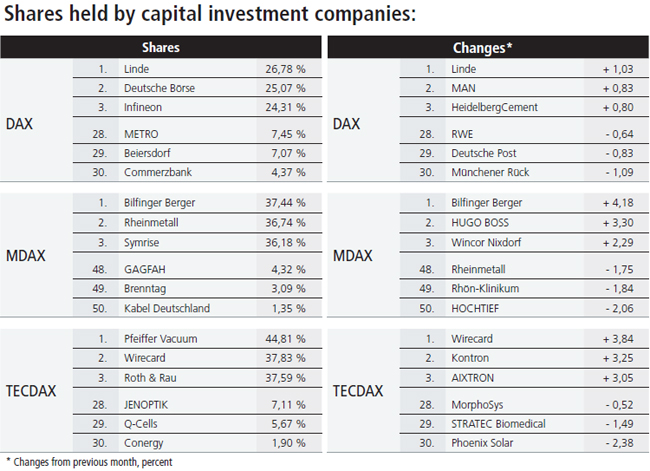
VIPsight Shareholder ID <click here>
Event Diary
19 January 2011 Andreas Dombret, Deutsche Bundesbank:Finanzstabilität im Zeichen der Staatschuldenkrise [The German Bundesbank: Financial Stability in connection with the national debt crisis]
Center for Financial Studies (CfS), Campus Westend, Goethe Universität Frankfurt; cost: none; registration: 069 798 30093
20 January 2011 Aktuelle Diskussionen im Kapitalmarktrecht: AnSFuG, Übernahmerecht und Leerverkäufe [Current discussions in Capital Market Law: AnSFuG, Takeover Law and short selling]
Organizer: DAI; place: Hessischer Hof, Friedrich-Ebert-Anlage 40, Frankfurt am Main; cost: €900; info: 069 2915-0
Reading suggestions
Lindmayer, Karl H., Geldanlage und Steuer 2011 [Investment and tax in 2011]
Gabler Verlag, 486 pp, €59.95, ISBN 978-3-8349-2632-6
Karl H. Lindmayer and his team of writers inform you in their usual competent and comprehensive fashion on all forms of investment and their tax characteristics, from stocks, bonds and mutual funds, insurance and real estate to options and futures. This range is extended to forms of so-called alternative investments, particularly private equity, hedge funds and investment certificates, but also REITs. For the reader, an expanded and improved online service is available: www.geldanlageundsteuer.de.
Raabe, Nico, Die Mitbestimmung im Aufsichtsrat – Theorie und Wirklichkeit in deutschen Aktiengesellschaften [Codetermination on the Supervisory Board – theory and reality in German companies]
Erich Schmidt Verlag, 383 pp, €49.95, ISBN 978-3-503-12619-4
Codetermination on the Supervisory Boards of German public companies is debated very heatedly, in the light of current corporate-governance requirements. But often opinions rather than objective data are to the fore. This author takes a different approach in this essay: based on extensive interviews with Supervisory Board members representing the capital and employee sides of 26 DAX companies, he records the reality of co-determination exactly and does away with existing prejudices. This leads to some surprising insights into the inner life of German Supervisory Boards, the psychology of codetermination, the impact of the hierarchies in companies and the role perceptions of Supervisory Board actors. The book is worth reading, contains some interesting findings for the debate on control efficiency and the composition of Supervisory Boards, and with its foreword by Professor Kurt Biedenkopf, the politician probably closest to the subject in recent decades, also has his official blessing.
Schirmacher, Albrecht F., Mahlmeister, Frank, Platow Prognose 2011 [Platow Forecast 2011]
Gabler Verlag, 260 pp, €61.00, ISBN 978-3-8349-2779-8
The PLATOW forecast takes special account of the power struggle between the old world power USA and the new growth centres in Asia and Latin America. The changes on our planet have an impact not only on economic growth, but also on the development of capital markets. An investment crunch is emerging in 2011 too, with meager returns on cash and annuities; you can escape it only if you bet on the right stocks and do not leave out emerging markets. So the PLATOW team has again gone on the hunt for 50 interesting securities. Besides the classical triad of Europe/Germany, USA and Japan, PLATOW in an extra chapter illuminates the emerging markets, with the particularly dynamic BRIC countries joined by the boom countries in the South Pacific (Indonesia and Australia).















